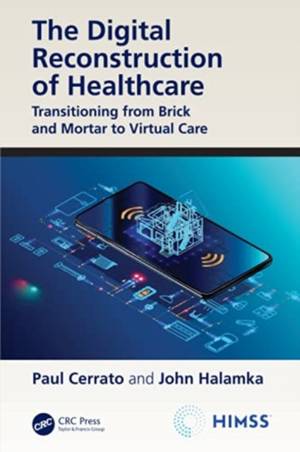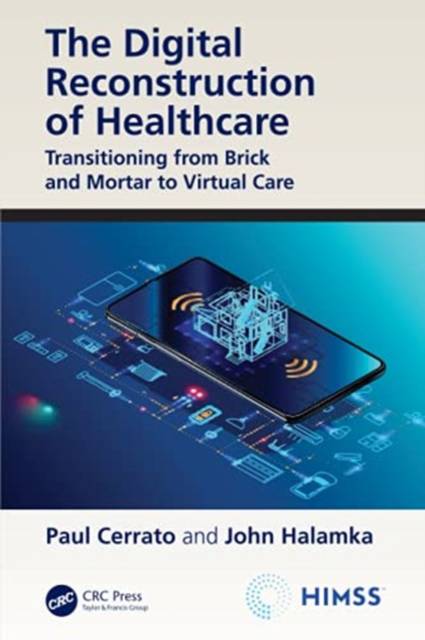
- Retrait gratuit dans votre magasin Club
- 7.000.000 titres dans notre catalogue
- Payer en toute sécurité
- Toujours un magasin près de chez vous
- Retrait gratuit dans votre magasin Club
- 7.000.0000 titres dans notre catalogue
- Payer en toute sécurité
- Toujours un magasin près de chez vous
The Digital Reconstruction of Healthcare
Transitioning from Brick and Mortar to Virtual Care
Paul Cerrato, John HalamkaDescription
The complex challenges facing healthcare require innovative solutions that can make patient care more effective, easily available, and affordable. One such solution is the digital reconstruction of medicine that transitions much of patient care from hospitals, clinics, and offices to a variety of virtual settings. This reconstruction involves telemedicine, hospital-at-home services, mobile apps, remote sensing devices, clinical data analytics, and other cutting-edge technologies. The Digital Reconstruction of Healthcare: Transitioning from Brick and Mortar to Virtual Care takes a deep dive into these tools and how they can transform medicine to meet the unique needs of patients across the globe.
This book enables readers to peer into the very near future and prepare them for the opportunities afforded by the digital shift in healthcare. It is also a wake-up call to readers who are less than enthusiastic about these digital tools and helps them to realize the cost of ignoring these tools. It is written for a wide range of medical professionals including:
- Physicians, nurses, and entrepreneurs who want to understand how to use or develop digital products and services
- IT managers who need to fold these tools into existing computer networks at hospitals, clinics, and medical offices
- Healthcare executives who decide how to invest in these platforms and products
- Insurers who need to stay current on the latest trends and the evidence to support their cost effectiveness
Filled with insights from international experts, this book also features Dr. John Halamka's lessons learned from years of international consulting with government officials on digital health. It also taps into senior research analyst Paul Cerrato's expertise in AI, data analytics, and machine learning. Combining these lessons learned with an in-depth analysis of clinical informatics research, this book aims to separate hyped AI "solutions" from evidence-based digital tools. Together, these two pillars support the contention that these technologies can, in fact, help solve many of the seemingly intractable problems facing healthcare providers and patients.
Spécifications
Parties prenantes
- Auteur(s) :
- Editeur:
Contenu
- Nombre de pages :
- 150
- Langue:
- Anglais
- Collection :
Caractéristiques
- EAN:
- 9780367555979
- Date de parution :
- 08-06-21
- Format:
- Livre broché
- Format numérique:
- Trade paperback (VS)
- Dimensions :
- 150 mm x 234 mm
- Poids :
- 294 g

Les avis
Nous publions uniquement les avis qui respectent les conditions requises. Consultez nos conditions pour les avis.






